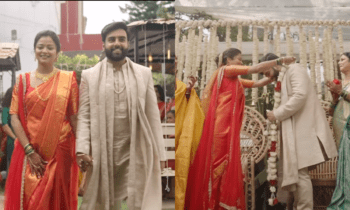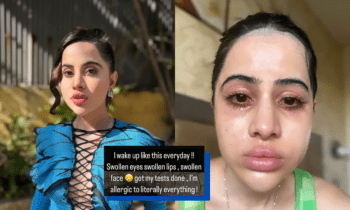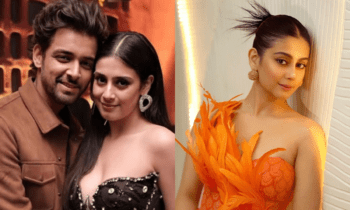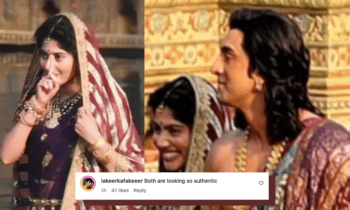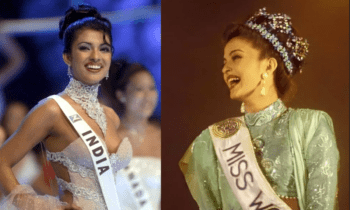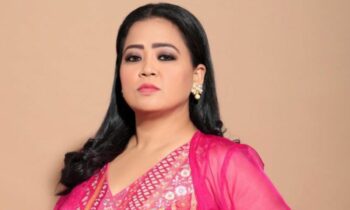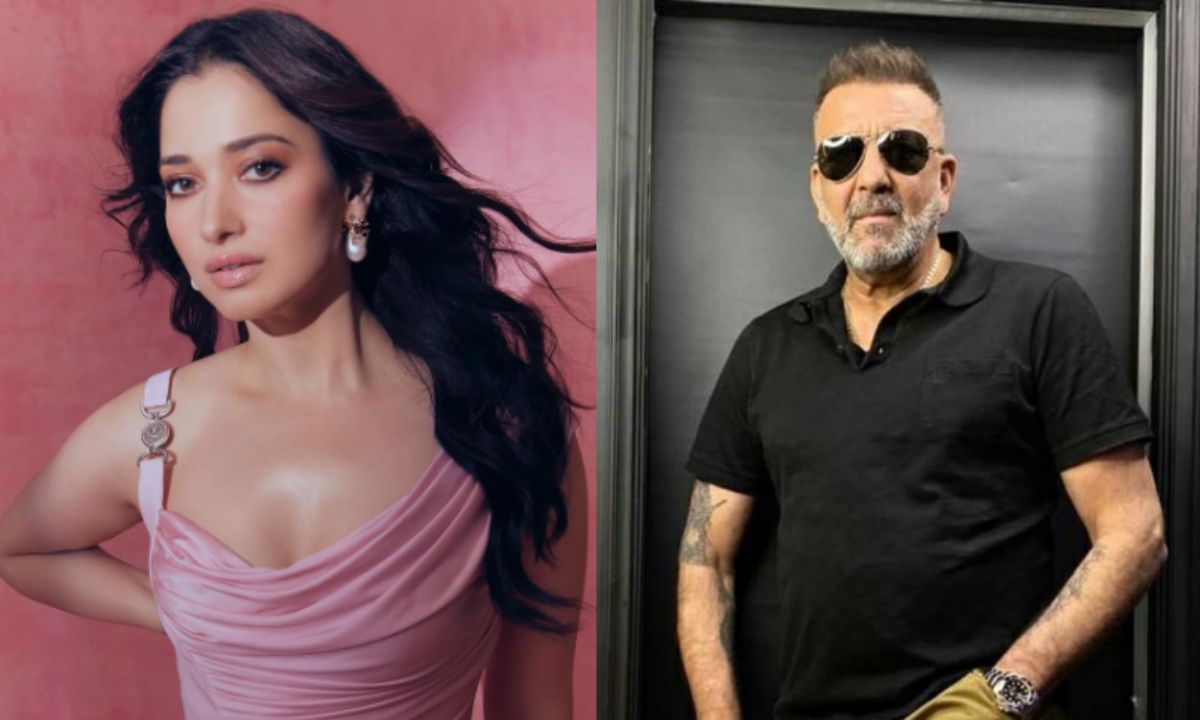Sumukhi Suresh, Urooj Ashfaq, Prashasti Singh On Being Female Comics In India, And Breaking The ‘Women Aren’t Funny’ Ceiling

The truth that women ARE funny isn’t taken all that seriously, despite there being some stellar female comics over the years. In fact, in a documentary called Hysterical that I watched at the SXSW Film Festival this year (available on FX), the current crop of women comedians in America highlighted just how difficult it is even now to breakout in this largely male-dominated sphere. Just like any other sphere, actually, women face double the struggle in establishing themselves, and double the judgement and criticism when they slip, compared to their male counterparts. And yet, women persevere. Look at the comedy scene in India, for example. A handful of female comics may have begun their ascent with just countering gender barriers. But today, a substantial number of them are going up against some very uniquely Indian barriers like caste and censorship, which could be exacerbated for them because of their gender. Are they winning? Are they losing? Who am I to say? Instead, I decided to hand over the mic to Sumukhi Suresh, Urooj Ashfaq and Prashasti Singh, three comics who’ve witnessed the changing face of India’s comedy scene.
These three women entered the comedy sphere at different times, and it is likely that each of them had some different, some similar experiences. Sumukhi Suresh was one of the earliest on the scene, and as Urooj revealed, one of the first Indian female comics she watched and got inspired by. But what inspired Sumukhi to quit working with a food lab and become a comic full-time in 2015? Who were the women in comedy that she watched?
View this post on Instagram
“I think the farthest back that I can remember, Movers & Shakers with Shekhar Suman, and Johnny Lever were a major comedic influence on me from India. But I came across female comics only when I had gotten into college and my friend introduced me to SNL (Saturday Night Live). I came across Tina Fey, Amy Poehler, Kristen Wiig, and Maya Rudolph, with their uninhibited jokes, characters, and voice acting. I remember thinking ‘Yeh toh bohot kill kar rahe hain!’
SNL is still going steady, of course, and Sumukhi continues to revisit these incredibly funny women every time she needs inspiration. “In one of her interviews, Kristen Wiig said that if you’ve forgotten how to do different characters, just watch other people or your peers do it and it’ll get you back into the space. So every time I have to play characters, or feel good about the industry, I go back to Kristen Wiig’s sketches,” Sumukhi says.
Urooj Ashfaq may have started like the rest of us, with watching The Great Indian Laughter Challenge because her parents would had it playing on TV all day, and then moving on to established names like Russell Peters. But her true early comedic influences came from an unusual source.
View this post on Instagram
“I didn’t find many female comedians in Bollywood; it was mostly Johnny Lever leading the charge. But, and this might sound weird, growing up, I saw a lot of Disney Channel. And what Disney Channel did was tap into girls being funny. They made Miley Cyrus as Hannah Montana, Selena Gomez as Alex, and Hilary Duff as Lizzie Maguire hilarious. I remember thinking, these are girls, this is their show where they are centre-stage, and they’re funny. That’s when I thought I wanted to do something similar. Over time, I realised I just needed a platform to be funny and standup comedy gave me that.”
By the time Prashasti Singh, who became popular with Comicstaan (Amazon Prime Video) in 2018, arrived on the comedy scene, there were quite a few female comics on television and on stage doing standup. But it took breaking down years of patriarchal conditioning that tells you women couldn’t be funny before she could grab the mic. And it took an encounter with a female comedian to be the catalyst for this change.
“I was working in marketing for Hindi television, and one of the projects involved some contestants from The Great Indian Laughter Challenge; one of them was Bharti Singh. And I realised that she was indeed the funniest of the lot. I think hanging out with her subconsciously broke that barrier in my head, and I started looking at comedy differently after that.”
View this post on Instagram
So, convincing themselves that they, women, can do comedy? Hard, considering there weren’t too many role models to aspire to. But convincing their families that this was a good profession for their daughter to pick over whatever else they could be doing…. I can imagine that would’ve been a tough set to crack, no? Like in Sumukhi Suresh’s case, where coming from a conservative family meant her mother imagining extreme scenarios.
“My mother was full on thinking, ‘You are now going to sell your body.’ *laughs* Funnily enough, comedy is the one thing that irrespective of how you look or how you’re dressed, exposed or fully covered, you can just come in any form and make the person laugh. It’s the most comfortable thing about comedy.” She adds, “As for my friends, they toh expected this because they were all, ‘Haan, you are very attention-seeking type, with your constant need to be on stage and your loudness. So yes, don’t come to us, just go on and project it all there!’”
I assume it would be harder to convince your family and friends, who are usually your first audiences, that you’re a girl who could have a successful comedy career that pays, when you haven’t been overtly funny all the time, or never before expressed an interest in or inclination towards comedy.
In a surprising reversal of roles, however, Prashasti Singh’s mom was down with her daughter, an MBA from IIM Lucknow, choosing comedy as a profession. “My mother’s only concern was financial security and ‘paise mil rahe hain kya?’ My friends too were glad that I was finally doing comedy. But I think my coworkers and relatives still can’t believe that this is a part of my personality. I have been so unfunny with them throughout my life! They’re just wondering, ‘Yeh kaise chhupa reh gaya humse?’
Also Read: SXSW ‘Hysterical’ Review: Hilarious, Incisive, Heartbreaking Account Of Women In Comedy, That Extends Beyond The Stage
Speaking of surprises, I got quite a pleasant one in the course of our conversation. Going back to the documentary Hysterical—which yes I will be doing a lot because it is a fascinating study of women in comedy and their experiences—I watched American comics like Iliza Shlesinger, Nikki Glaser and more, talk about struggling to get enough stage time to hone their craft. This was usually the case because comedy too, like most public spheres, is the dominion of men. And most organisers, fellow male comics, and audiences alike would rather listen to men crack bad jokes than women crack any. I couldn’t help but wonder if the situation was similar in India, which is inherently a more gender biased country. And boy, was I surprised!
“I don’t think we had that issue with struggling to find stage time,” recalls Sumukhi. “I started in Bangalore. I had done videos and improv, and I was doing sketches with Naveen Richard. And I remember the boys there asking me, ‘Why aren’t you doing standup?’ She talked about the time she finished work around 10 pm and there was an open mic where everyone was waiting for her to perform. “I finished my set and a friend and fellow comic came to me and said if I hadn’t shown up that night, he would have been upset. That’s how invested they [the male comics] were. And it only got easier when I came to Mumbai.”
View this post on Instagram
Both Urooj and Prashasti’s experiences echo Sumukhi’s. Getting stage time wasn’t all that hard, which makes me glad to know! I’d like to think this was also the case because at this juncture, India’s standup comedy scene was thriving in full force. In fact, according to Prashasti, by the time she entered, there were enough ladies nights at open mics to take her pick, which was perfect because she could begin there and gradually build up her confidence.
“The problem was not of getting a spot, but my own inhibitions that I had to overcome,” said Prashasti. “As a woman, you are just so much more conscious of how people are seeing you, perceiving you. And it’s actually those mental barriers that you have to break and develop a thick skin. Which, I think as women, we end up developing any way.”
But Sumukhi reminds us that, again, these experiences, though positive, are still just of the three of them. Other female comics could’ve encountered their own set of issues. Besides, let’s not forget that there are always logistical issues that affect female comics more than they do their male counterparts. Says Sumukhi, “Open mics in cities like Delhi are at 9 pm and 10 pm, and I’ve heard a lot of female comics say that they do not want to go for these because how will they get back home so late? It is equally tragic that they cannot do what they love because of safety concerns.”
Furthermore, it might not always be stage time, but audience reaction, as Urooj Ashfaq points out, that might be hurtful because it is motivated by gender bias. “I think the fact that we are women really becomes a problem for online audience,” says Urooj. “Usually, people who are interested in comedy, they will attend your show and they just want to laugh. Now I have had experiences where I felt that the audience was a little off for the female comics. But by and large, I think it’s people online who let the gender get in the way of the jokes; in very rare cases, it’s the offline audience.”
View this post on Instagram
Oooooh, that’s a hot take if I ever saw one. Audience reactions. We’ve often seen men complain that women comedians are not funny because they keep cracking jokes on very ‘feminine’ topics like periods, dating, marriage and so on. But as a fellow woman, and creative, I feel that it takes a great deal of courage to take these deep-seated insecurities, sometimes even trauma, and negative emotions that we’re taught to repress, and turn it into comedy performed before a live audience. Not everyone has the guts (I won’t say balls) to reach within themselves and pull out content like that. I tell these incredible ladies how much I am in awe of what they manage to do every other day, and Sumukhi points out how that’s where the skill comes from, and that’s why not everyone can do comedy.
“I don’t think all of us have an agenda to speak about our insecurities as if we’re making a point,” elaborates Sumukhi. “Although, I’m glad that there is a takeaway to it. We primarily look if the setup of the joke is good and the audience is laughing or not. But since we are so clear in terms of our formats and our fundamentals, it’s effective, evidently.”
But here’s the irony, okay. The moment women choose to keep the personal aside and joke about the big ones—politics, religion, current events—people bring out the troll guns. It’s as if they think women aren’t educated or enlightened enough to even talk about these things, let alone crack a joke about them. Sumukhi Suresh uses an apt example to explain why this might be the case. “Haan, kyunki inn logon ne bachpan mein sirf papa ko newspaper padhte dekha hai. Mummy bhi sab kaam khatam karke padh leti thi, but they never saw that.”
She continues, “You are right. I think if it’s not something personal but fairly universal or topical, we do end up getting comments like, “Tu kyun bol rahi hai? What do you know?” and it is slightly frustrating.”
We’ve seen countless female comics mercilessly trolled and harassed for voicing their opinions, like Agrima Joshua in India for making a joke about a historical figure. Or Kelly Bachman in America for calling out #MeToo accused Harvey Weinstein in her set, when she spotted him sitting in the audience of her show. You won’t even have to search deep. Just pick up any desi female comic and scan their Instagram comments or Twitter replies. I know I have, just to see how low people can stoop.
Also Read: Comedian Agrima Joshua Got Explicit Rape Threats For Making A Joke. Why Do Indian Men Always Resort To Threats Of Sexual Violence?
But remember that point Prashasti made about developing thick skin? That’s an advice most of these female comics have taken and turned into an armour. Sumukhi is no longer as bothered by audience reaction. And she attributed it to the fact that it’s the kind of trolling that they’ve prepped for all their lives, because as women in general, we get put in spots where we get these questions and comments all the time.
“Kar lo troll. Kya hi kar loge? What will you say that my mother hasn’t already told me?”
View this post on Instagram
But Sumukhi agrees that sometimes the harsh trolling manages to penetrate their armour. Because on the other side is a hidden, anonymous face who is pushing the hurtful comment in with so much confidence, it can really get you. “ Sometimes, it’s a guy who thinks that he truly deserves to be where you are. I see this with a lot of men who troll me, who’re kind of saying ‘Tere haath mein mic kaise hai? If you can do it then even I can’. But the truth is, that’s never the case, because being a comedian comes with a certain amount of skill.”
Urooj concurs. “Sumukhi’s made a good point. Some of these trolls are so sexist that they think whatever appreciation, adulation and laughs the female comedian is getting, they should be the one getting it instead. They won’t say it in so many words, but the emotion behind it is, “You’re a woman, how can you be better than us?”
Wanna know what’s really funny but not, though? On one hand, men would complain that women aren’t funny. But on the other, they’re also unsure of how to handle it when the women are funnier than them. Sumukhi Suresh had an interesting story to volunteer about this, actually, which as a funny girl myself, I get a lot!
“I have to tell you this! I was part of a Clubhouse room recently that was discussing what it’s like to date comedians. And a lot of them said male comedians dating is cool, but how to date female comedians? Woh mujhse bhi funny hai toh main kya karun? First I thought it was just one person, but then a string of guys had the same concern. ‘What if I can’t make her laugh and then she makes me laugh?’ Arre, toh phir hass le na, bhai! Maybe she is funny and you aren’t!”
Arre ladkon, hypocrisy ki bhi koi seema hoti hai ki nahin?
Also Read: 5 Takeaways About Dating From ‘Good On Paper’ Starring Comedian Iliza Shlesinger That Are Worth Remembering
Anyway, there are always going to be haters who’re going to hate, potatoes who’re going to potate, and trolls who’re going to troll. And sometimes the loud noises that trolls make can drown out genuine feedback and applause from the audience. And it takes years of patience and practice to differentiate the constructive from the trolling.
“There are many people who’ve written to me entire paragraphs explaining why they think I am not funny,” reveals Urooj. “And now it has become easy to differentiate between constructive criticism and trolling. Plus, the appreciation you get reinforces your belief that if people are coming to my shows and watching my videos, then probably it’s not that I am not funny, it’s just that one guy gaslighting me into thinking that I am not.”
Luckily, after substantial years on the planet as a woman, these comics have seen and heard it all. Gaslighting, as Sumukhi Suresh puts it, is just another Tuesday morning for them now! Hear hear!
It’s incredibly heartening to see just how far women in comedy have come since they began and how higher they’re yet to soar, considering they’re given the right platforms to do that. Currently, the three ladies du jour—Sumukhi Suresh, Urooj Ashfaq and Prashasti Singh—are all set to battle it out with their contemporaries in a game of jokes, jibes, improv and teamwork, in Netflix’s newest reality show, the Comedy Premium League.
And mind you, this contest, with 16 participating comedians, is no laughing matter. It’s a cutthroat one. If you don’t believe me, maybe their menacing team names will convince ya— Lovable Langoors (Amit Tandon, Samay Raina, Rytasha Rathore and Aadar Malik); Naazuk Nevle (Mallika Dua, Rahul Subramanian, Urooj Ashfaq and Rahul Dua); Gharelu Gilaharis (Kenny Sebastian, Prashasti Singh, Kaneez Surka and Aakash Gupta); and last but not the least, the IDGAF Iguanas (Sumukhi Suresh, Tanmay Bhat, Rohan Joshi and Sumaira Shaikh).
The team names intrigued me. I mean, I get that this must’ve been a pe-decided format, but what could’ve possibly made them think of animals like gilahari and nevle? They reminded me of the names that teams in Legends of The Hidden Temple would have! You remember that game show which was our ‘Bachpan (pronounced ‘Baspan’) Ka Pyaar’ (bhool nahi jaana)?
Prashasti, who is from Gharelu Gilaharis, volunteers an explanation for the name, which she says, was a unanimous decision. “We were all practicing together at Kenny’s [Sebastian] house in Goa. And we realised that we vibe on this cool, flowy, homely, not overly competitive nature of our’s. Of course, all that changed over the course of the show. But we wanted an animal that embodied those characteristics, so we just assumed gilehriyaan gharelu hoti hain. Zyada research nahi ki!”
Guess who also didn’t do research? Sumukhi Suresh who is the captain of her team, the IDGAF Iguanas, but probably didn’t know much about their team mascot. “See IDGAF and all that cool stuff in our team is always Rohan Joshi. The moment they told us this was the format, he just went, ‘Fine then, we’re the IDGAF Iguanas’. In fact, Sumaira [Shaikh] found out what an iguana is during the show, after we decided our name!”
But there’s some reverse psychology at play here, because turns out, the IGDAFs do GAF. “We’re aggressively competitive so we wanted our name to be the exact opposite. That’s as deep as the layering behind this team name goes,” reveals Sumukhi.
But I think the real genius is Urooj’s team, who came up with a pretty mind-blowing idea. “Initially, we wanted to call ourselves Team Sumukhi, even though she isn’t part of our team. And we thought it would be really funny if we call ourselves Team Sumukhi because every time someone said it, it would just be confusing for everyone. Sumukhi would have such conflicting feelings about winning!”
Way to sabotage thine enemies! Even though they didn’t stick with that name, because format, their decided team name was rather… erm… inspired by nature. “Naazuk Nevle was Mallika Dua’s idea. She said that mongoose are very sweet, just like the four of us, but they can fight and kill snakes (snakes being the other teams, obviously).”
View this post on Instagram
CPL has four episodes available to stream on Netflix currently, with a fifth one and a grand finale being released on August 27, 2021. And as someone who has seen the four episodes already, I can say that it’s nice to see a fair balance of gender in all teams, and the ladies be killing it. I see how a lot of their humour is inspired from issues and realities that are inherently feminine and tied deeply to the complex experience of being a woman in today’s world. And when I see that comedy, it often reminds me of one of my favourite quotes from Marvelous Mrs. Maisel….
“Comedy is fuelled by oppression, by the lack of power, by sadness and disappointment, by abandonment and humiliation. Now, who the hell does that describe more than women? Judging by those standards, only women should be funny!”
I concluded my chat with these ladies by throwing at them a challenge that you’ll see them encountering in the show as well. Come up with a punchline! To what, you ask? Well, to the most basic-ass thing that female comics have to repeatedly hear, despite how far they’ve come—“Women aren’t funny.”
Prashasti says, “I can’t say it yaar. Censor ho jayega!”
Same, Prashasti, same.
Comedy Premium League is currently streaming on Netflix.





